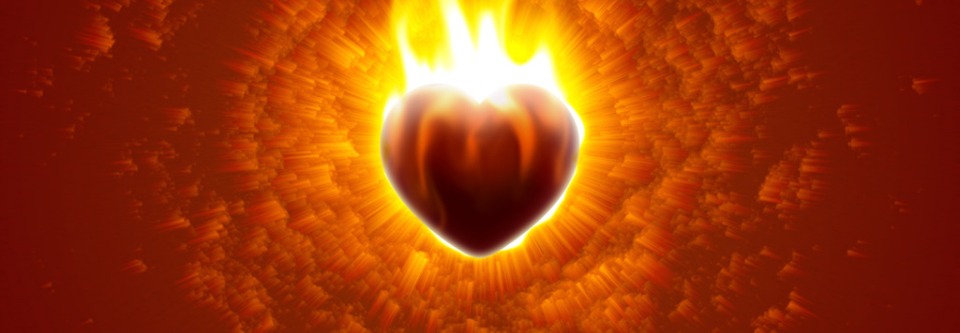I’m Not a Lightworker, I’m a Darkwalker
In the last year I’ve transitioned from working as a full-time pastor to now working more in the, how do I say this, non-institutionalized version of spirituality popular nowadays. Now that I work in the realm of soul readings, energy healing, and imaginal capacities, I keep coming across the term lightworker. It’s a common term, particularly in the New Age world. I’ve even been occasionally described by others at some gatherings as a lightworker.
This kinda irked me for awhile, but at first I didn’t pay a great deal of attention to it. I just mostly ignored it. Finally at a recent gathering someone introduced me as a lightworker and I gently corrected the person to say that I didn’t identify with the term and didn’t want to be called a lightworker. I said if others felt comfortable with the term I respected that, but personally I didn’t feel right being categorized in that way.
This caused a surprising bit of angsty energy in the room. I received some funny looks (by funny here I mean disapproving).
It’s a strange word, lightworker. First off it’s got the word worker in it, which I find not especially inviting. Worker like worker bee. Seems very corporate-cubicle to me. Very drone feeling.
And then there’s light. Light and work seem an odd pairing. Does light do work? I guess, in a manner of speaking. Light gives birth to plants and food. It warms and heats. But it’s definitely not work in the normal use of the term. There’s a certain ease when it comes to light that doesn’t seem (to me) to gel with the word work.
Anyway, the mechanics of the word aside, what’s the intention behind describing oneself as a lightworker? And why do I have a significant enough disagreement with the term to ask that I not be called it?
What I understand by the term lightworker is the notion that people see themselves as serving the light. The light as in The Light of Truth or The Light of Spirit.
That’s obviously a very honorable intention, one I seek to live out myself. But I find the word lightworker tends to come with a bias towards the heavenly realms. Light is often depicted to be up above. At best this suggests a model in which the Light is needing to be brought down into our human realm. At worst it suggests a seeking to go up and out of our daily existence. It can very easily become an escape.
Admittedly, the higher, subtle planes of reality are more comfortable, pleasurable, and filled with less pain than our everyday world. There’s no denying that truth. There’s less resistance in the subtle, heavenly realms. But as the Buddhist wheel of karma correctly teaches us, even the realm of the gods is still a form of very, very subtle entrapment. It’s the necessary inverse to the realms of hungry ghosts. If there’s a heaven there has to be a hell. If there’s a hell, there has to be a heaven. But what if both heaven and hell were to fall away, to melt into nothingness?
Another potential problem I see is the notion of being a lightworker can be very disempowering–suggesting we don’t have the resources necessary here in material, earthly existence. I’m not suggesting this is the conscious intent. In fact, I think the vast majority of folks who I’ve heard or read use the term seem to me very well meaning, conscientious persons.
Well-intentioned or otherwise, I still think there’s a problem here.
Two questions I often ask myself is: what is the dark side of the light? And what is the light side of the darkness?
I’ve written about this before in relationship to the religion of Jedi-ism (yes it’s an official religion in some places now). I wrote on the Jedi Code and how the original code included lines like:
Emotion yet peace.
Passion yet serenity.
Death, yet the Force.
And then in a later edition of the Jedi Code, the balanced view expressed in the original code became corrupted into a one-sided one with a strong spiritual (“heavenly”) bias against the earthly realm.
The code became:
There is no emotion, there is peace.
There is no passion, there is serenity.
There is no death, there is The Force.
This is what I mean by an overemphasis on being a lightworker. We forget about the darkness totally and make everything “light” or conceive the darkness only as a force of resistance or evil.
Since we’re talking Jedis, a better term than workers would be walkers. Luke was a Skywalker. George Lucas, of course, based the Jedi on various traditions of Eastern monks, who are often said to be Cloud-Walkers (which is where Skywalker comes from). One who walks the high places.
Stephen Jenkinson calls himself the Griefwalker. He walks with people through their grief. The process of undergoing the death journey is called The Deathwalk. Shamans are said to walk between the worlds. My good friend William is literally a Walker (his actual last name) and he literally walked a pilgrimage of his ancestor across Canada and the US (read it, it’s mind blowing).
In other words, there could be a whole ecology of walkers. (I think walker is a much stronger term than worker). Walkers have work to do certainly but they also enjoy the sights.
I wouldn’t push this too far, but maybe I’d call myself a Darkwalker since I advocate for the role of entering into the darkness along the path.
In the darkness is found light.
Consider this teaching from the Kabbalistic tradition (Jewish mystical tradition). In one version of Kabbalah, creation occurs by the Divine Self hiding into The Divine Self, creating a space, as it were, of ‘non-God’. Into this space creation comes forth. There were vessels created meant to help modify, contain, and mediate the Light of Creation. The Light to form creation however was too strong to be held and the light splintered the vessels of creativity, leading to shards (called klipot) scattered everywhere. In shamanic traditions, this is called soul fragmentation. Kabbalah suggests there was a kind of cosmic soul fragmentation–a fragmentation perhaps of the World Soul itself.
The shards are the painful jagged realities of our world. The brokenness, the suffering, the alienation, the loneliness, the enmity, the prejudice, the violence and the chaos that so mars existence.
The Kabbalist is one who neither fights nor succumbs to the shards. The Kabbalist rather transmutes them. For, as the story goes, hidden within each shard is a drop of light, a hidden remnant of the original Light, waiting to be released. When the shard is loved fully, the light is released.
The transmutation of the shards is an act of shadow work. It’s a restoration of the fragmented pieces. It’s a liberation of the light. It’s spiritual, economic, political, social, ecological all wrapped up into one.
This soul retrieval, somehow both personal and cosmic, happens by entering into the darkness. Notice–this is a very subtle and extremely important point–it happens by the embrace of the darkness not just by sending light into the darkness (though that may be a part of the process).
This is why I’ve sometimes half-jokingly/half-seriously said I want to be called a Darkworker. Or now a Darkwalker. Not because I serve the darkness in some demonic sense but I understand the place of the awakening of the darkness. It’s worth recalling that the character of Lucifer is said to be an Angel of the Highest Light who fell–there is then a potential darkness (in the negative sense) in being addicted to the Light.
Not only is there light to be found in the shadowy darkness, there is also a grace to darkness itself. (Darkness here not as the shadow but as the realm of Being).
The great Christian mystic, St. Dionysius the Areopagite wrote of the state of mystically uniting with The Source and Cause of All Reality as “Luminous Darkness.” It’s a light so bright it darkens our minds and hearts. Since we connect to The Cause in this space, this state of consciousness is known as causal.
Dionysius said that we enter into this Luminous Darkness by dropping all preferences. We can’t prefer up over down, left over right, right over left. We can’t prefer sorrow over joy or joy over sorrow. Crucially, we can’t prefer light over darkness. We have to let go, Dionysius would say, even our most subtle spiritual experiences in order that we might rest in Pure Mystery, beyond all words, beyond all concepts, beyond all conventional knowing.
We must be illuminated in the darkness of unknowing, guided only by our burning hearts.
Given Dionysius’ insight, does calling oneself a Lightworker prevent entrance into the Luminous Darkness? Does it perhaps make it harder?
I happen to believe so.
The language, images, and metaphors we use to interpret and frame our spiritual experiences are extremely important. They can push us to greater depth or they can subtly pull us away from certain types of realization and experience. Our frames, especially our spiritual ones, can start to form a deep bias in our minds. As a consequence, there are enormous implications to the frames we placed around spirituality.
So if you think this is all just some word play or heady spiritual talk, here’s a concrete example of how the Lightworker/Luminous Darkness plays out in terms of ethnicity and racial prejudice in the contemporary spiritual scene.
Lightworkers tend to be too addicted to the subtle, heavenly world of Light–chakras, meridians, auras, colors, etc. Those realities have their place and are important but they aren’t more important than the causal luminous darkness–which in turns isn’t more important than the waking-world, material day to day world. Each plays its role and supplements the other.
But because there is an overemphasis on understanding Light in its subtle form, we see a real bias towards light-haired (usually blonde) white woman in the yoga and spiritual communities nowadays. (There are also plenty of social and historical factors at play involved here, in terms of white privilege and power–I don’t want to discount those. But there is also a spiritual reason for this occurrence). I see so many white, often blonde woman, called radiant goddesses on Facebook. I much more rarely see a really very dark-skinned black or brown women called a radiant goddess. If we forget the beauty of the light in the darkness and the luminous nature of the darkness itself, this is what happens. For the record, I have nothing against beautiful white yoga women–I just don’t believe they constitute the radiant goddess norm.
That is just one example, but it points to the reason why I would rather be called a Darkwalker than a Lightworker. If we become overly fascinated with the subtle lights of the heavens, we forget the light trapped in the shadows and we forget there is a realm beyond the subtle, light-filled heaven, a luminous darkness, a Ground of All Being, from which everything comes into existence. Those deserve our time, attention, and love at least as much as the subtle lights (if not in our day more so).
I encourage you (wisely) to walk in the darkness. Walk into the Infinite Abyss of Love, the realm of Luminous Causative Darkness. Try also, when you feel ready, to gently walk with Love into the realm of our personal darknesses–our shadows. There is light to be found there as well.



